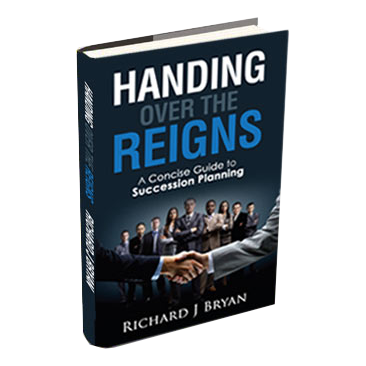It’s easy to think of succession planning the way we might think of drafting a will—as in, who really wants to think of those things at all? Particularly if you’re young and healthy, mortality (like any dramatic business changes that might affect your company) seems like something that happens to other people.
As a Succession Planning Speaker, I come across this mindset so often! To those people, here’s what I’d say: as with your estate, the best time to draw up an outline for the distant future is NOW, when that future seems like a tiny blip on the horizon. Whether or not your company is a family business, “blue-sky succession planning” has tangible advantages—here are five reasons to start the process this year.
1. It Benefits Your Business Now.
The process of succession planning begins with a thorough audit of key roles and current personnel— where are the strengths and weaknesses? Where are the potential overlaps or efficiencies? Simply gaining authentic transparency into your organization’s operational pros and cons can be a watershed moment for your business. And that’s just the very first phase!
In my role as a succession planning speaker, I’ve watched it happen time and again: the process of planning for the future helps companies thrive in the present. By looking forward into an uncertain future, you demystify that uncertainty by setting down clear strategies for growth and change, with clear milestones to follow along the way. This level of proactivity can only be good for your bottom line.
Extra bonus: by growing new leaders from within your organization, you not only ensure that the new leaders truly understand your business—you remove the additional risk of astronomical compensation packages for executives coming from other companies.
2. Your Employees Stand to Gain.
And your company isn’t the only entity that stands to gain from proactive succession planning—your employees will also derive enormous benefits from the process. During the personnel/competencies audit, you’re going to uncover a plethora of strengths and weaknesses in your workforce. This knowledge will help immensely as you identify a go-forward plan for employee development and promotion.
For employees, this means knowing that their value has transparency across the organization (something that’s frequently only available to immediate managers), as well as a clearly defined roadmap for advancement. As I often tell the clients I meet at my succession planning speaker events, knowing both their inherent value and the company’s goals for them creates confident and content employees.
When your workers can see their path to a lucrative future as a long-term member of your team, your employees will start to see their roles as a career rather than just a job—making it much less likely you’ll lose the cream of your crop to another organization.
3. The World is Unpredictable.
I can’t stress enough that my succession planning speaker events aren’t just for family businesses with elderly or infirm leaders. Every organization needs a contingency plan, if for the very reason that the world is—by nature—highly unpredictable. Health scares, freak accidents and natural disasters don’t typically give us a heads-up before they throw a massive monkey wrench into our lives.
Think of it this way: your company is only as safe as the combined health of your most valuable team members and their families. If your entire management team retired today, would you still be able to run your company? Many talented senior professionals who are perfectly healthy themselves retire to care for a family member, or to handle some unforeseen personal disaster—and it pays (literally) to be ready.
4. It Makes Stakeholders Happy.
According to Forbes, formulating a succession plan is one of a board’s most important responsibilities. Yet in a recent study of $500M+ companies, fully half of those surveyed didn’t have a contingency plan in place. Proactive, transparent succession planning signals to your investors and other stakeholders that the company is prepared to weather any number of uncertainties.
It also indicates that under the consistent guidance of experienced leaders who understand your company’s values, your brand is built to withstand even the most dramatic transition—avoiding customer confusion that can impact bottom line.
5. It Helps to Simplify Transitions.
It may seem like a no-brainer, but it’s worth mentioning to the 50% of you who may not yet have a framework in place—blue-sky succession planning will save your business when that fateful day inevitably does come.
Without it, an unexpected vacancy on your leadership team may press you into either hiring his or her replacement quickly, without proper vetting and option exploration…or weathering the vacancy until you can find the right person. Both scenarios can be disastrous to your business.
By contrast, identifying your succession personnel in advance ensures not only that the company’s culture will remain intact, even during uncomfortable or transitional times—but also that a proven leader is there to pilot your organization through the storm.
Related Post


